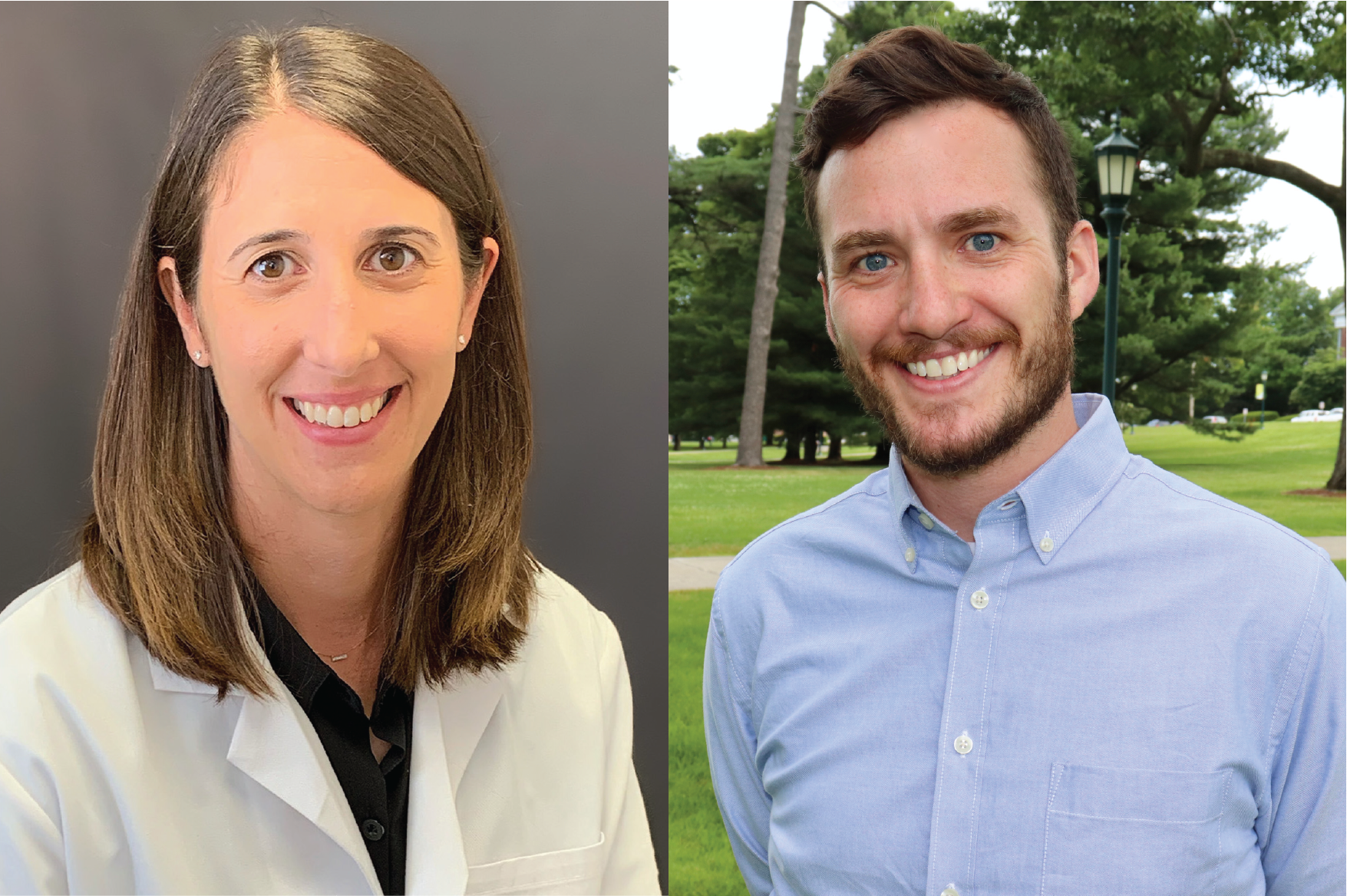
Karlyn Martin, M.D. (left), and Jay Garvey, Ph.D. (right).
The Cancer Population Science research program at the University of Vermont Cancer Center recently announced the winners of its pilot awards. The pilot awards are a unique philanthropy-funded mechanisms to support members conducting population-based research.
The awardees are:
Karlyn Martin, M.D., associate professor of Medicine. Dr. Martin’s study will evaluate factors that influence initiating timely anticoagulation treatment in newly diagnosed pancreatic cancer patients. Individuals diagnosed with pancreatic cancer have a 50-fold higher chance of developing venous thromboembolism (VTE), or blood clots1. Despite guidelines which support starting newly diagnosed pancreatic cancer patients on anticoagulation medication, evidence indicates that this is not routinely done2. An inter-programmatic collaboration with Cancer Center members Chris Holmes, M.D. (CHE), Steven Ades, M.D. (CHE), and trainee member Ryan Thomas, this project will inform the development of effective implementation strategies for anticoagulation treatment, decreasing VTE in patients with pancreatic cancer and improving their outcomes. The project will evaluate factors across different settings, including rural areas, to ensure that implementation strategies reflect the needs of various groups within the Cancer Center’s catchment area.
Jay Garvey, Ph.D., associate professor of Education. The pilot award will support studies on cancer-related health disparities among sexual and gender minority populations in rural Vermont. Vermont has approximately 5.2% of residents who identify as LGBTQIA+, ranking it as the sixth highest state in the nation3. Recent studies have shown substantial health disparities among sexual and gender minority communities4–7 (source). However, it is unclear how these communities are specifically impacted by cancer related health disparities. Working in collaboration with Kell Arbor from the Vermont PRIDE Center, Maija Reblin, Ph.D. (CPS), and Diego Adrianzen Herrera, M.D. (CHE), the team will explore cancer-related health disparities across the cancer continuum in rural Vermont. The findings of this study will inform future research directions and clinical care needs among sexual and gender minority communities.
References:
1. Mulder, F. I. et al. Venous thromboembolism in cancer patients: a population-based cohort study. Blood 137, 1959–1969 (2021).
2. Heffley, J. et al. Venous Thromboembolism in Patients with Pancreatic Adenocarcinoma: Disease Burden and Initiation of Ambulatory Thromboprphylaxis.
3. LGBT Data & Demographics – The Williams Institute. https://williamsinstitute.law.ucla.edu/visualization/lgbt-stats/?topic=LGBT#about-the-data (2019).
4. Institute of Medicine. The Health of Lesbian, Gay, Bisexual, and Transgender People: Building a Foundation for Better Understanding. (The National Academies Press, Washington, DC, 2011).
5. Ceres, M., Quinn, G. P., Loscalzo, M. & Rice, D. Cancer Screening Considerations and Cancer Screening Uptake for Lesbian, Gay, Bisexual, and Transgender Persons. Semin. Oncol. Nurs. 34, 37–51 (2018).
6. Kamen, C. S. et al. “Treat us with dignity”: a qualitative study of the experiences and recommendations of lesbian, gay, bisexual, transgender, and queer (LGBTQ) patients with cancer. Support. Care Cancer 27, 2525–2532 (2019).
7. Pratt-Chapman, M. L., Alpert, A. B. & Castillo, D. A. Health outcomes of sexual and gender minorities after cancer: a systematic review. Syst. Rev. 10, 183 (2021).